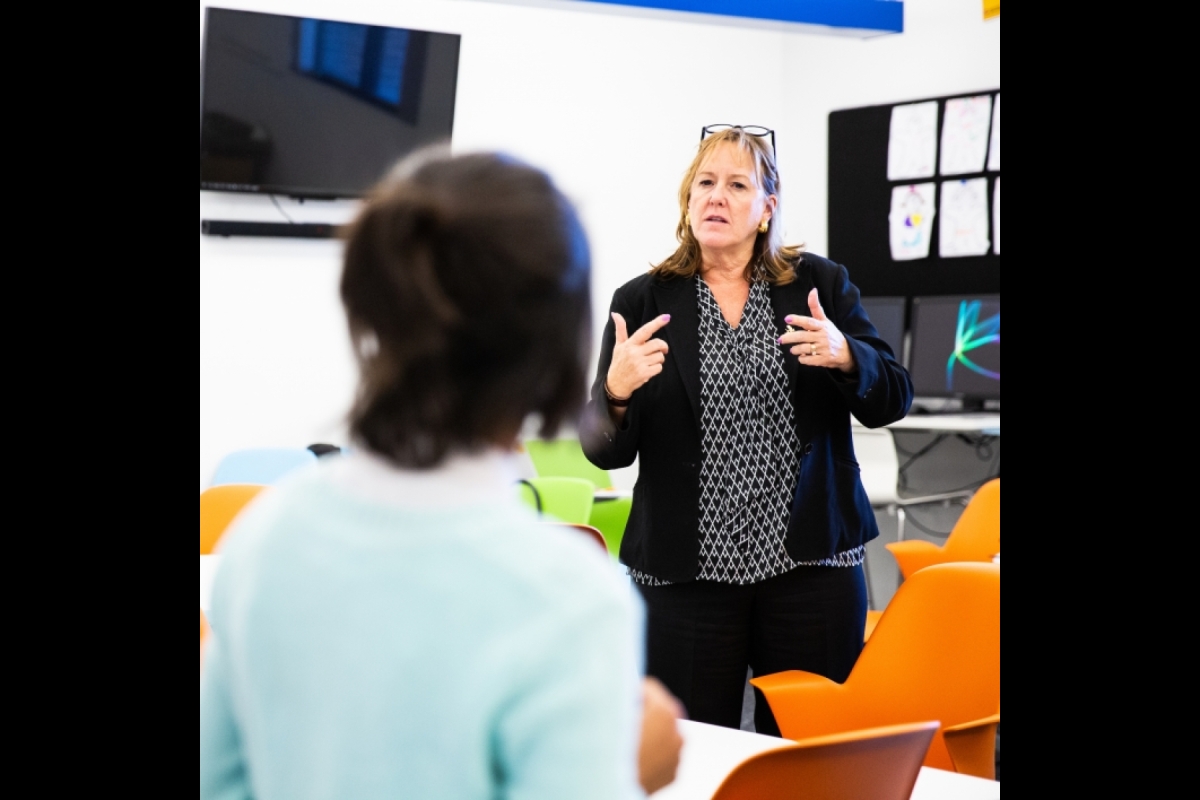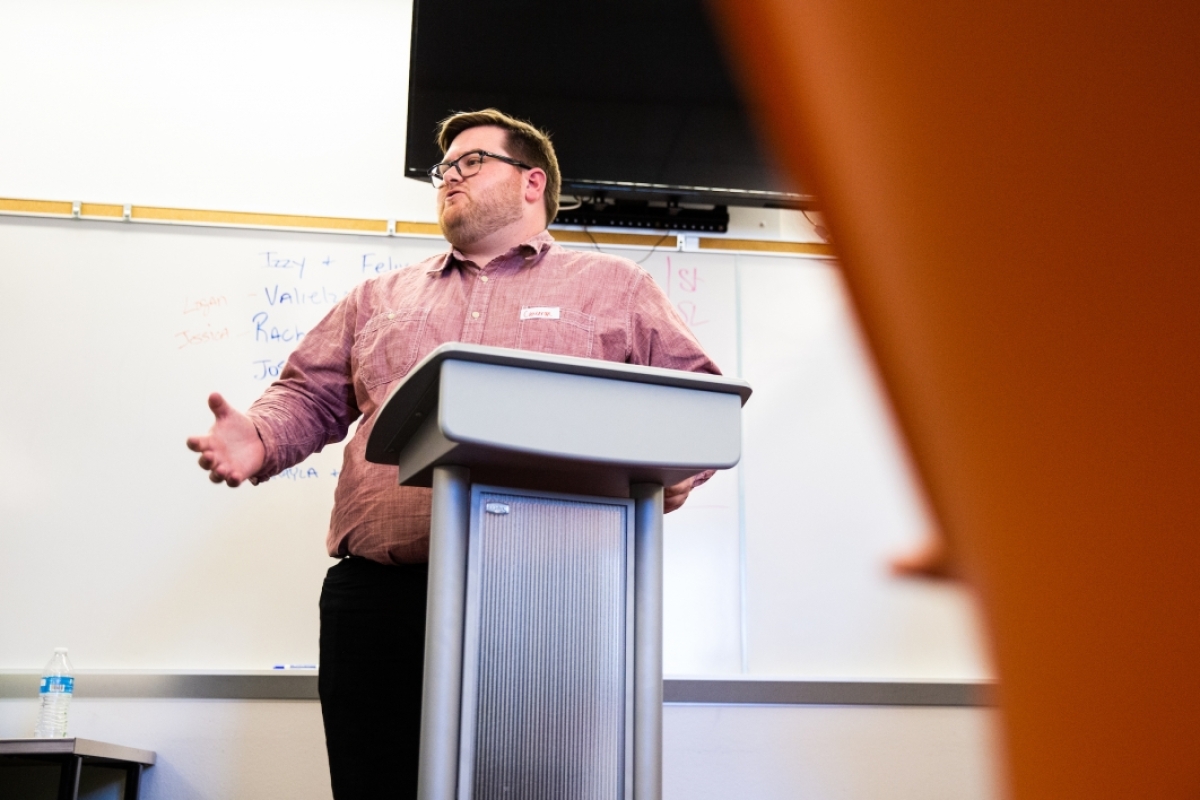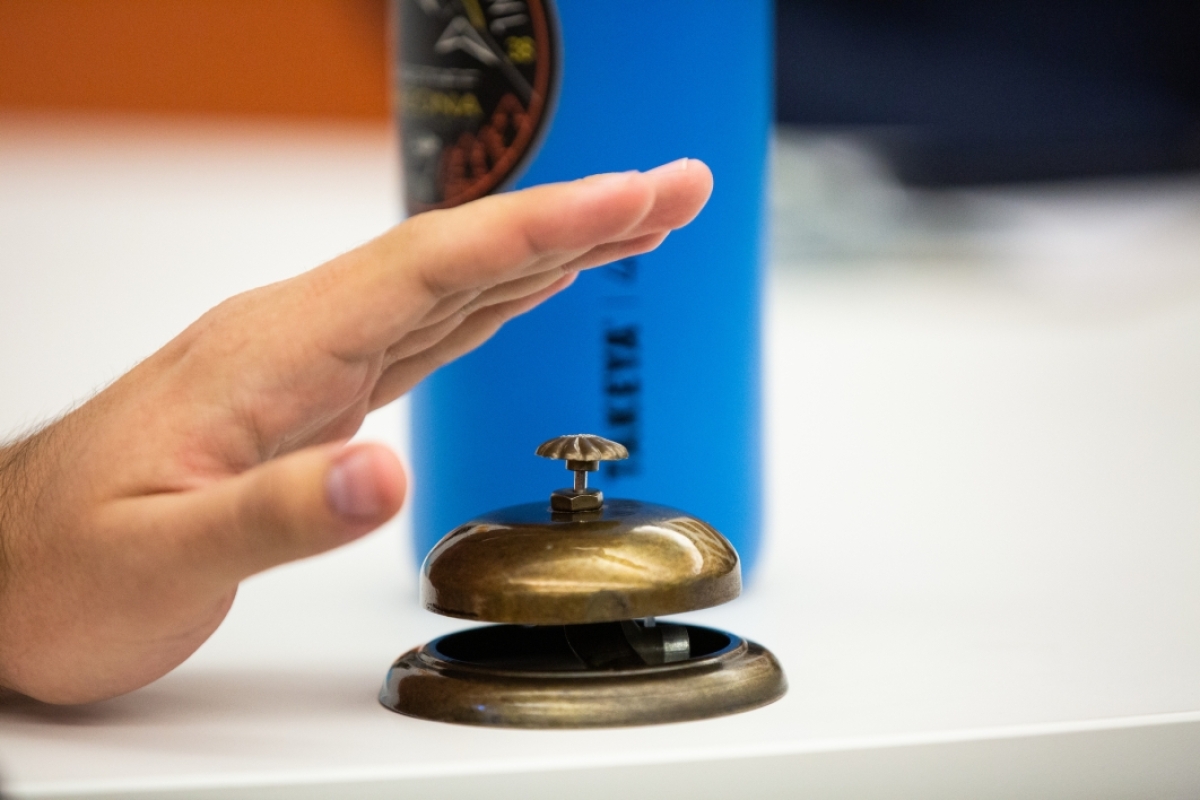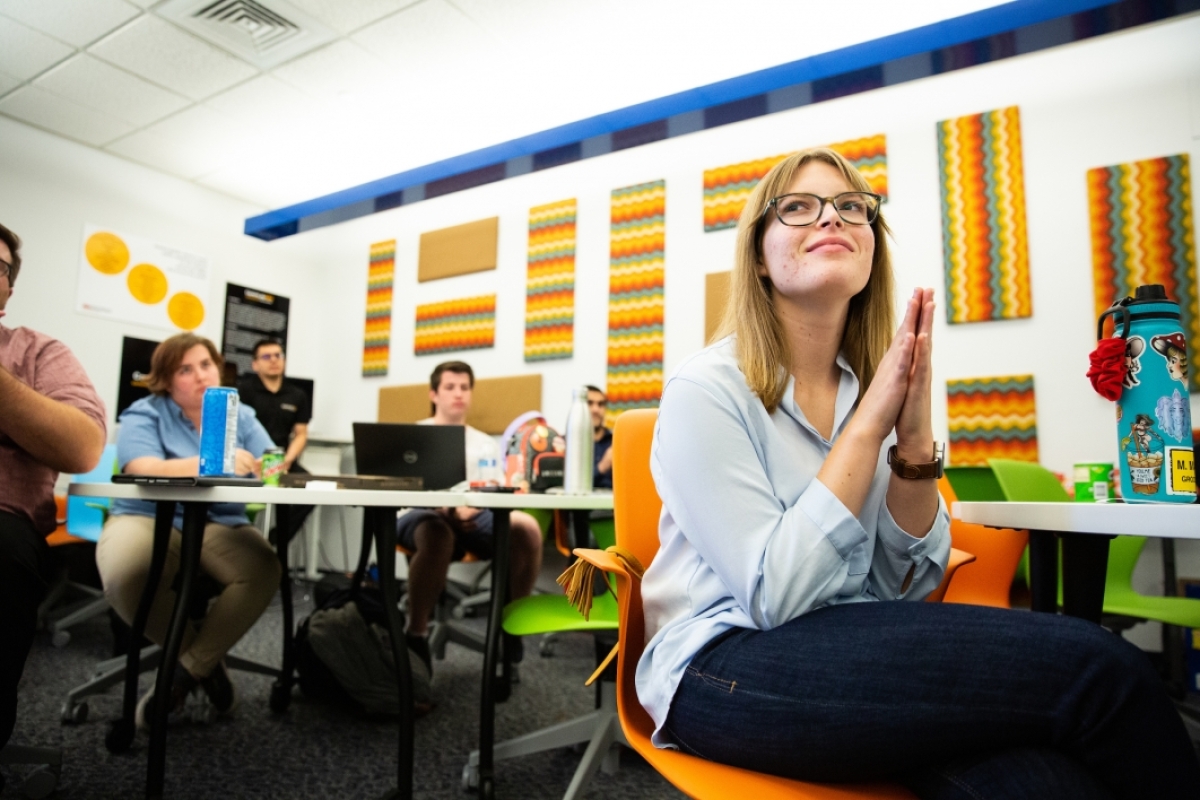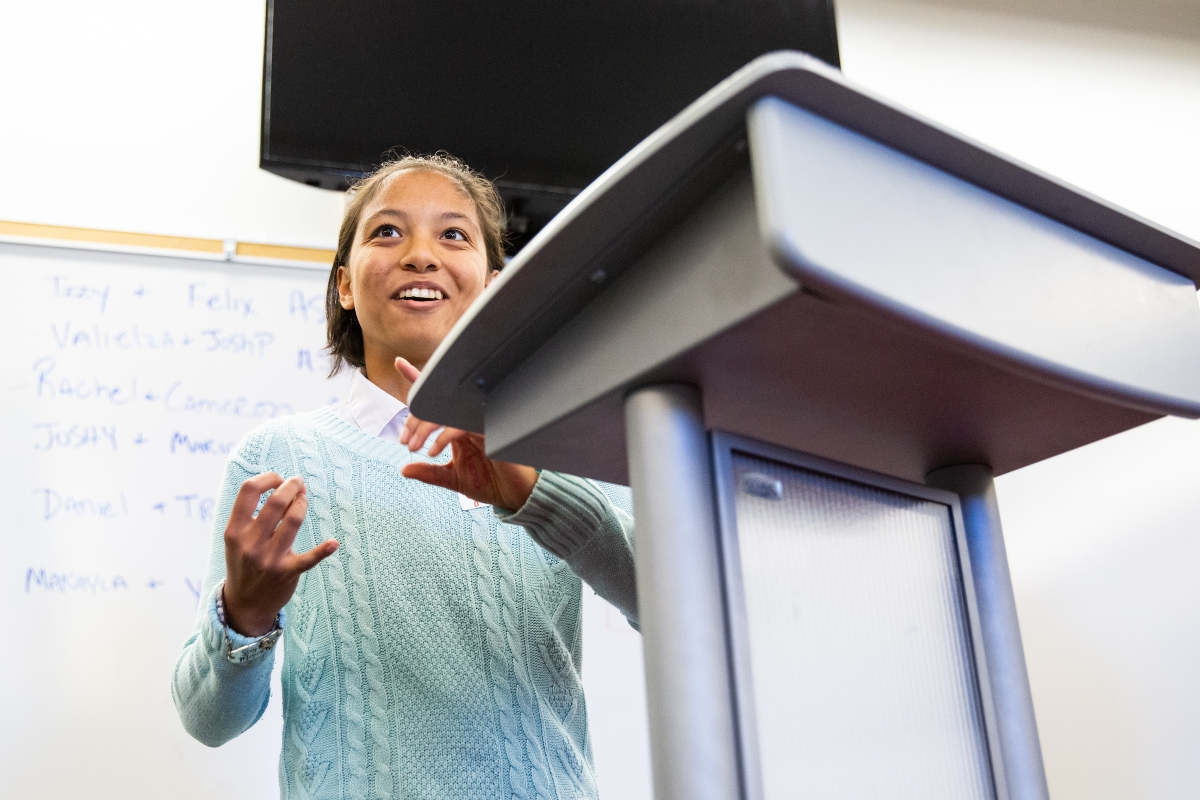Regents' Cup to showcase state university students debating free speech issues
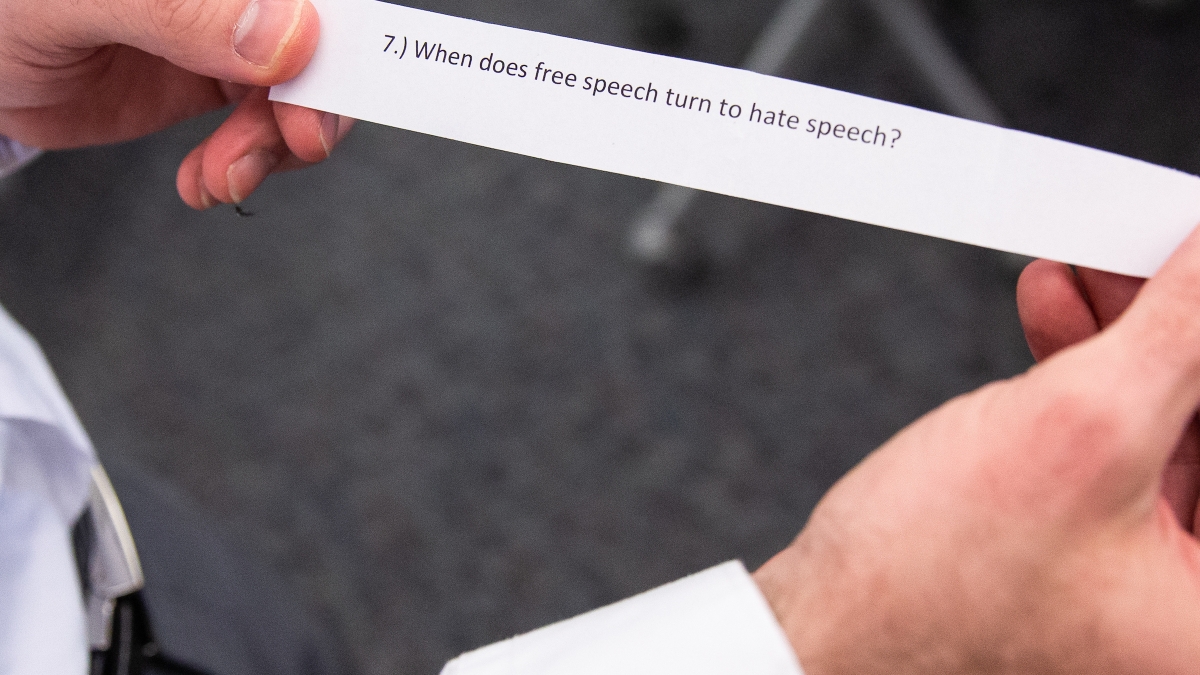
Update: Arizona State University undergraduates Valielza O’Keefe, a physics major, and Joshua Pardhe, a computer systems engineering major, won first place at the inaugural Regents' Cup competition on Nov. 16. Read more here.
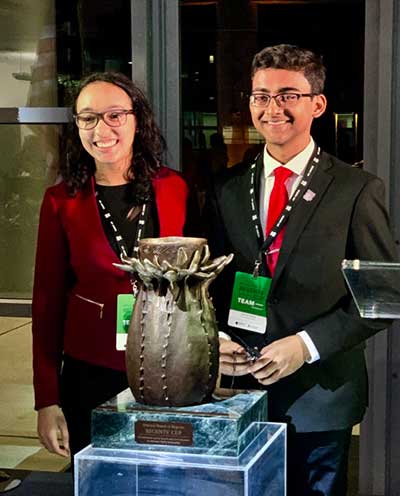
ASU students Valielza O’Keefe and Joshua Pardhe with the Regents' Cup after their win Saturday.
In this era of political divisiveness, social media amplification and “cancel culture,” how can people talk reasonably about tough topics?
Students from Arizona’s three public universities have been working on this issue for months and next week will participate in a series of intellectual competitions aimed at elevating respectful and effective communication.
The inaugural Regents' Cup will be held Nov. 16 at the University of Arizona, and the student teams from Arizona State University, Northern Arizona University and the University of Arizona have been preparing all semester.
“The Regents' Cup is really a way to celebrate free speech and civil dialogue,” said Bonnie Wentzel, director of the Communication Lab at ASU, which is helping the ASU teams prepare.
“People give that lip service all the time, but it’s something we practice every day as part of being inclusive. You have to be willing to listen to another perspective or opinion besides your own.”
Karrin Taylor Robson, a member of the Arizona Board of Regents and an alumna of ASU, envisioned the competition as a way to encourage democratic engagement. She hopes the event will showcase Arizona universities' commitment to free speech.
University students applied last spring and will compete in two-person teams. The competition will involve four events covering the general theme of free speech and will focus on listening as well as speaking. The events are:
Civil Dialogue: This is a formatted but spontaneous method of face-to-face communication that was developed at ASU. It involves audience interaction. The teams find out the topic 30 minutes before the start of the event. Judges are looking for the effective use of listening and the use of non-argumentative language.
Solutions: Teams are assigned a position to either support or refute a solution having to do with defamation and social media. Judges want to see the teams working together to clearly and effectively support their position.
Persuasive storytelling: One student from each team will tell a 10-minute personal story about the role of social media in free speech. The storyteller will be judged on content, emotion and effective persuasion.
Oxford-style debate: This is a traditional, competitive debate format in which teams have an opening statement, cross examination and closing argument.
All teams will compete in the civil dialogue, solutions and storytelling competitions in the morning, and the three teams with the highest scores will then move on to the Oxford-style debate rounds in the afternoon, which is open to the public. The winning teams will be awarded scholarship money.
ASU is sending six teams, with one alternate team, to the Regents' Cup. They have spent the semester practicing at CommLabASU, whose mentors are perfectly suited to prepare them, Wentzel said. CommLabASU, located at the West campus, helps students and faculty hone their public speaking skills.
“The mentors are trained to be civil communicators by really listening, and they have to be able to say, ‘Here’s where your message needs organizing,' or 'Here’s where you need a story,’” she said. “They have to be able to cut through ‘I don’t like what you’re saying but I appreciate your right to say it.’
“What’s great about this is that we’re trying to help people find their own voice and discuss controversial things by focusing on the topics without tearing down another person.”
Students have been doing months of research into free speech topics and have been working on their communication skills. At a recent rehearsal, they practiced debating for 60 seconds and were interrupted with a bell every time they said “um.”
“They have to manage their nonverbals, which is everything besides the actual words — pitch, body position, facial expressions,” Wentzel said. “We lose that as we’re always looking down at our phones.”
Joshua Pardhe, a computer systems engineering major at ASU, found out about the competition through Barrett, The Honors College, and decided to participate because it’s not just a straightforward debate.
“It has these other elements that are overlooked in a debate competition,” he said.
“You’re not just graded on how well you can debate a topic but how well you can convey a story.”
Pardhe will be the storyteller for his team, and believes the skill he’s developing will help in his career.
“I want to start my own business, and one of the things you need to know is how to convey a story and present a problem effectively to investors,” he said.
The teams also have been working with ASU faculty.
“The preparation with the mentors is really in-depth and informative, and every time we meet to do research or practice, it’s very hands-on,” Pardhe said.
Eliana Lara, a junior majoring in political science and Spanish at NAU, had honed her public speaking skills when she was student body president at Maryvale High School in Phoenix. She decided to apply for the Regents' Cup at the urging of a favorite professor.
She was also drawn to the format.
“Oxford is more old school but civil dialogue, storytelling and solutions are not so aggressive, where you have to pinpoint what they say and win the argument,” she said.
“It’s more about hearing what the other side is saying and understanding. You get more of a chance to listen.”
Ashley Fredde is a senior majoring in journalism at the University of Arizona, where she’s captain of the debate team. Several of the team’s members are on the Regents' Cup team.
“I’m passionate about social issues and civil discourse, which is why I joined the debate team, and as a journalist I’m passionate about free speech,” she said.
“This format has required us to switch from being argumentative to taking a step back and listening to other viewpoints. We’ve gone from building up arguments to listening to others and even agreeing with them.”
She’s also enjoyed the storytelling.
“Some of the stories are really impactful and you get to see a different side of your teammates,” she said. “It’s definitely brought us closer together as a team.”
Lauren Beethe, a graduate student in communication studies, is the ASU coordinator of the Regents' Cup and is a graduate student director of CommLabASU. Her master’s degree focuses on advocacy.
“The goal of advocacy is to communicate issues, whether in social movements or technology, as a way of building a bridge between issues and solutions in a way that is beneficial to both parties, but is civil and doesn’t breed distance between the two groups,” said Beethe, who focuses on biometric surveillance policy.
She’s gratified that the Regents' Cup has drawn students from across ASU’s campuses and from a variety of majors.
“It’s teaching these different disciplines that these tools are relevant and can help a student who studies political science communicate with an engineering student in a way that’s meaningful and that can focus on issues greater than academics,” she said.
“Communicating ethically brings back the humanity to these topics that have lost that element,” she said.
“Communicating is the art form of humanity.”
Top image: A student holds a debate prompt during the ASU Regents’ Cup team practice at CommLabASU at West campus on Nov. 1. Student teams from ASU will compete against students from the University of Arizona and Northern Arizona University in storytelling, debate, solutions and civil dialogue. Part of the competition, the Oxford debate, will be open to the public at 3 p.m. Saturday, Nov. 16, at McLelland Hall, Eller College of Management, at the University of Arizona, Tucson. Photo by Deanna Dent/ASU Now
More Law, journalism and politics

ASU committed to advancing free speech
A core pillar of democracy and our concept as a nation has always been freedom — that includes freedom of speech. But what does that really mean?Higher education doesn’t have an agenda to curate a…

ASU experts share insights on gender equality across the globe
International Women’s Day has its roots in the American labor movement. In 1908, 15,000 women in New York City marched to protest against dangerous working conditions, better pay and the right to…

ASU Law to offer its JD part time and online, addressing critical legal shortages and public service
The Sandra Day O’Connor College of Law at Arizona State University, ranked 15th among the nation’s top public law schools, announced today a new part-time and fully online option for its juris doctor…


